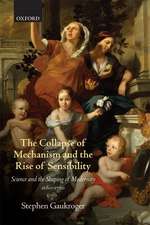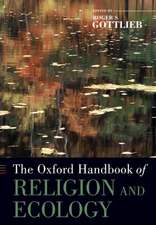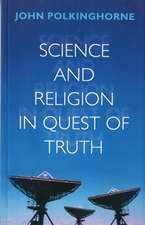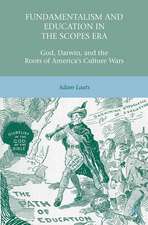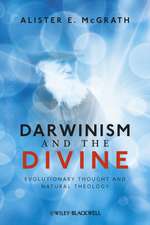Science and Religious Anthropology: A Spiritually Evocative Naturalist Interpretation of Human Life
Autor Wesley J. Wildmanen Limba Engleză Paperback – 15 noi 2016
| Toate formatele și edițiile | Preț | Express |
|---|---|---|
| Paperback (1) | 487.37 lei 6-8 săpt. | |
| Taylor & Francis – 15 noi 2016 | 487.37 lei 6-8 săpt. | |
| Hardback (1) | 1117.07 lei 6-8 săpt. | |
| Taylor & Francis – 28 oct 2009 | 1117.07 lei 6-8 săpt. |
Preț: 487.37 lei
Nou
Puncte Express: 731
Preț estimativ în valută:
93.25€ • 97.89$ • 77.41£
93.25€ • 97.89$ • 77.41£
Carte tipărită la comandă
Livrare economică 10-24 aprilie
Preluare comenzi: 021 569.72.76
Specificații
ISBN-13: 9781138262003
ISBN-10: 1138262005
Pagini: 294
Dimensiuni: 156 x 234 x 16 mm
Greutate: 0.41 kg
Ediția:1
Editura: Taylor & Francis
Colecția Routledge
Locul publicării:Oxford, United Kingdom
ISBN-10: 1138262005
Pagini: 294
Dimensiuni: 156 x 234 x 16 mm
Greutate: 0.41 kg
Ediția:1
Editura: Taylor & Francis
Colecția Routledge
Locul publicării:Oxford, United Kingdom
Notă biografică
Wesley J. Wildman is Associate Professor in the Philosophy, Theology, and Ethics department of Boston University's School of Theology. He directs the multidisciplinary Science, Philosophy, and Religion doctoral program within the university's graduate school. His research and writing focuses on interdisciplinary topics connecting religion with the natural and social sciences. He is the author of Fidelity with Plausibility: Modest Christologies in the Twentieth Century, an interdisciplinary study of plausibility conditions in Christian theology; editor with W. Mark Richardson of the textbook Science and Religion: History, Method, Dialogue; and co-editor with Wentzel van Huyssteen and others of the Encyclopedia of Science and Religion. He is also Cofounder with Patrick McNamara of the Institute for the Biocultural Study of Religion, a research institute devoted to the scientific study of religion.
Cuprins
Preface; Part 1 Preliminaries; Chapter 1 Inquiry; Chapter 2 Naturalism; Part 2 Perspectives; Chapter 3 Evolution; Chapter 4 Groups; Chapter 5 Brains; Chapter 6 Bodies; Chapter 7 Sex; Chapter 8 Habitat; Part 3 Findings; Chapter 9 Homo Religiosus;
Recenzii
'Hardly any theologians have taken the time and effort to study the full wide range of our modern - and post-modern - scientific knowledge of human existence, human health and well-being, and human disease and other limitations. Wesley Wildman, however, has done just that; and the astonishing portrait of our human reality that he paints in his new book, Science and Religious Anthropology, completely explodes the archaic language and ideas that still dominate most current religious and theological thinking and speaking about our humanness and its practices and problems. This book is a must read for anyone who is seriously concerned about these matters.' Gordon Kaufman, Harvard Divinity School, USA 'Wesley J. Wildman is the first mature theologian to apply thorough-going, indeed bravura, literacy in a wide range of sciences to a central theological topic, namely, theological anthropology. In this volume, he brings evolutionary theory in biology and psychology, the neurosciences, cognitive sciences, sociology, anthropology, medicine, sexology, social constructionism, and ecology together with the customary resources of theological anthropology: philosophy, ethics, and theology. The result is an account of human life that shows its multitude of religious "behaviors, beliefs, and experiences" to be grounded in nature, according to the trajectories of contemporary scientific inquiries. Science and Religious Anthropology lays out a fresh theological vision that recontextualizes the debates among church theologians, scientists, and secular humanists attempting to understand human nature and its values. This volume is essential reading for every theologian and for any scientist who thinks about religion.' Robert Cummings Neville, Boston University, USA, author of On the Scope and Truth of Theology, Religion in Late Modernity, and Realism in Religion. '... Wildman’s book significantly advances the scientific understanding of religion and religious engagement of the s
Descriere
Science and Religious Anthropology explores the convergence of the biological sciences, human sciences, and humanities around a spiritually evocative, naturalistic vision of human life. The disciplinary contributions are at different levels of complexity, from evolution of brains to existential longings, and from embodied sociality to ecosystem habitat. The resulting interpretation of the human condition supports some aspects of traditional theological thinking in the world's religious traditions while seriously challenging other aspects. Wesley Wildman draws out these implications for philosophical and religious anthropology and argues that the modern secular interpretation of humanity is most compatible with a religious form of naturalistic humanism. This book resists the reduction of meaning and value questions while taking scientific theories about human life with full seriousness. It argues for a religious interpretation of human beings as bodily creatures emerging within a natural environment that permits engagement with the valuational potentials of reality. This engagement promotes socially borne spiritual quests to realize and harmonize values in everything human beings do, from the forging of cultures to the crafting of personal convictions.




